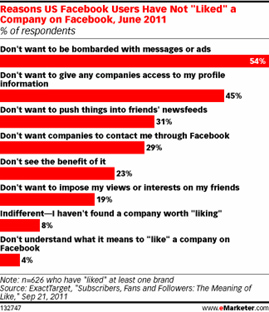In the current data driven era, companies across all sectors and industries are keen to extract as much value from the hoards of data they possess as possible. In many cases this data can be used to provide a better service, create better products or, improve efficiencies internally. Organisations are investing heavily in methods of processing data for both internal and external benefit.
But in many cases means of obtaining personal data is not necessarily transparent to the public – so can consumers trust that businesses will respect their personal data? The Guardian’s reporting on Edward Snowden’s leaking of documents has put the spotlight on organisations and got many of us thinking about how our personal data is processed online.
Recently after reading one such article I shifted over to an ecommerce site to order some merchandise. Snowden’s actions got me thinking about exactly who I share information with and what that vendor does with my information.
On one hand I realise that sharing personal information allows the company to tailor content specifically for me that can create a superior shopping experience. But what else is the company doing with my personal information?
Take a look at this graph from EContent Magazine that asks why US Facebook users have not ‘liked’ a company. Granted, it’s from 2011 but I don’t think things have changed much in this area. In fact, if anything, users are more concerned about privacy issues online than they ever have been. The second most popular answer – Don’t want to give any companies access to my profile information – really hits home to me.

Simply sending raw customer data to your customer service department isn’t enough.
It’s important for marketing executives to realise two things when considering what to do with customer data. First, customer data is gold and it must be used in an intelligent way. Simply sending raw customer data to your customer service department isn’t enough. Marketing leaders must establish a feedback loop that shares information with each department where appropriate. By segmenting and analysing customer feedback, the customer experience pool becomes a much more powerful tool benefiting the customer and the company.
Second, after multiple government (GCHQ) and corporate scandals (Enron), transparency has gone past being a buzzword. Aside from the Edward Snowden revelation, it was recently reported that councils have been selling thousands of voters’ details. Big Brother Watch found that three billion personalised items of junk mail are sent annually as a result of this, by the likes of estate agents, pizza shops and marketing firms.
This revelation does nothing to encourage public trust and it’s something vendors must take an authentic and transparent stance on.
A recent ICO study into public attitudes has also shown similar concerns over personal data, stating that 97% of those asked were worried that organisations would pass or sell-on their personal details. The survey also found that 53% of participants considered details of the products they had bought to be personal information. What is most surprising is that only 10% of businesses were aware of the legal limitations of how they could use personal customer data. There’s clearly some work to be done.
To alleviate concerns about sharing customer data, companies must be open and honest about how they obtain data and, more importantly, who can view and use that data. It may sound simple but it is too often overlooked. When implementing a customer feedback loop, marketing executives should be sure that customers have the opportunity to easily opt out of sharing their data and that all of the information is treated securely and not shared with any outside sources unless agreed on by the customer.
Aside from the clear fact that transparency on personal data is a moral duty, it’s just good business sense too. If companies can (re)build trust with customers they will develop stronger and more profitable relationships. Customers are likely to feel comfortable allowing a certain amount of flexibility with their data if they feel they are getting good value back. Implementing and communicating this should be a priority for any company that deals with user data – don’t you think?
When speaking at the launch of the ICO annual report, about the boost in public awareness and education, Chief Information Officer Brian Pennington said: “The result is consumers expecting organisations to handle their personal data in a proper way, and in a legal way. Businesses that don’t meet that basic requirement are going to quickly find themselves losing customers.”
He believes that this year organisations will realise the commercial imperative of properly handling customer data. With Microsoft’s latest campaign focusing on privacy it’s clear that companies are beginning to understand the importance of transparency and trust. Is your business?
Do you think it’s the year of transparency for organisations? Let us know in the comments section.





